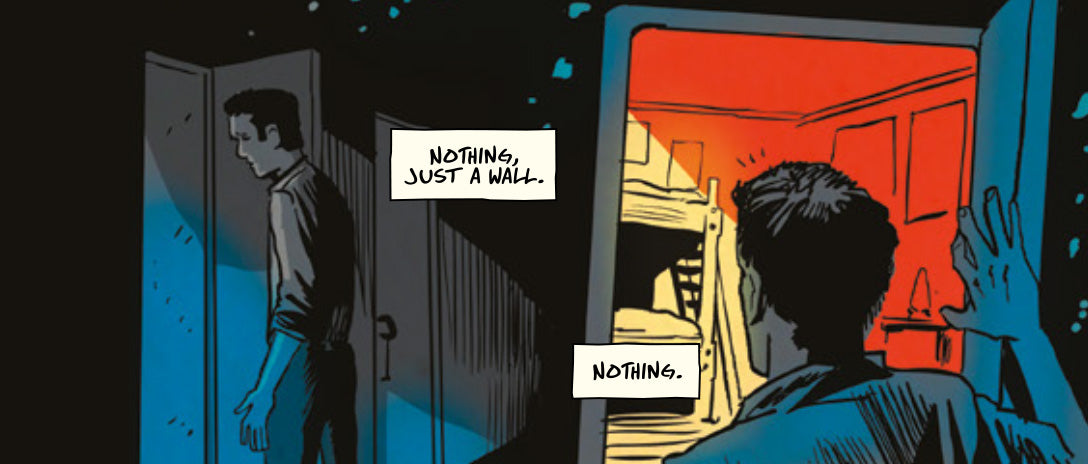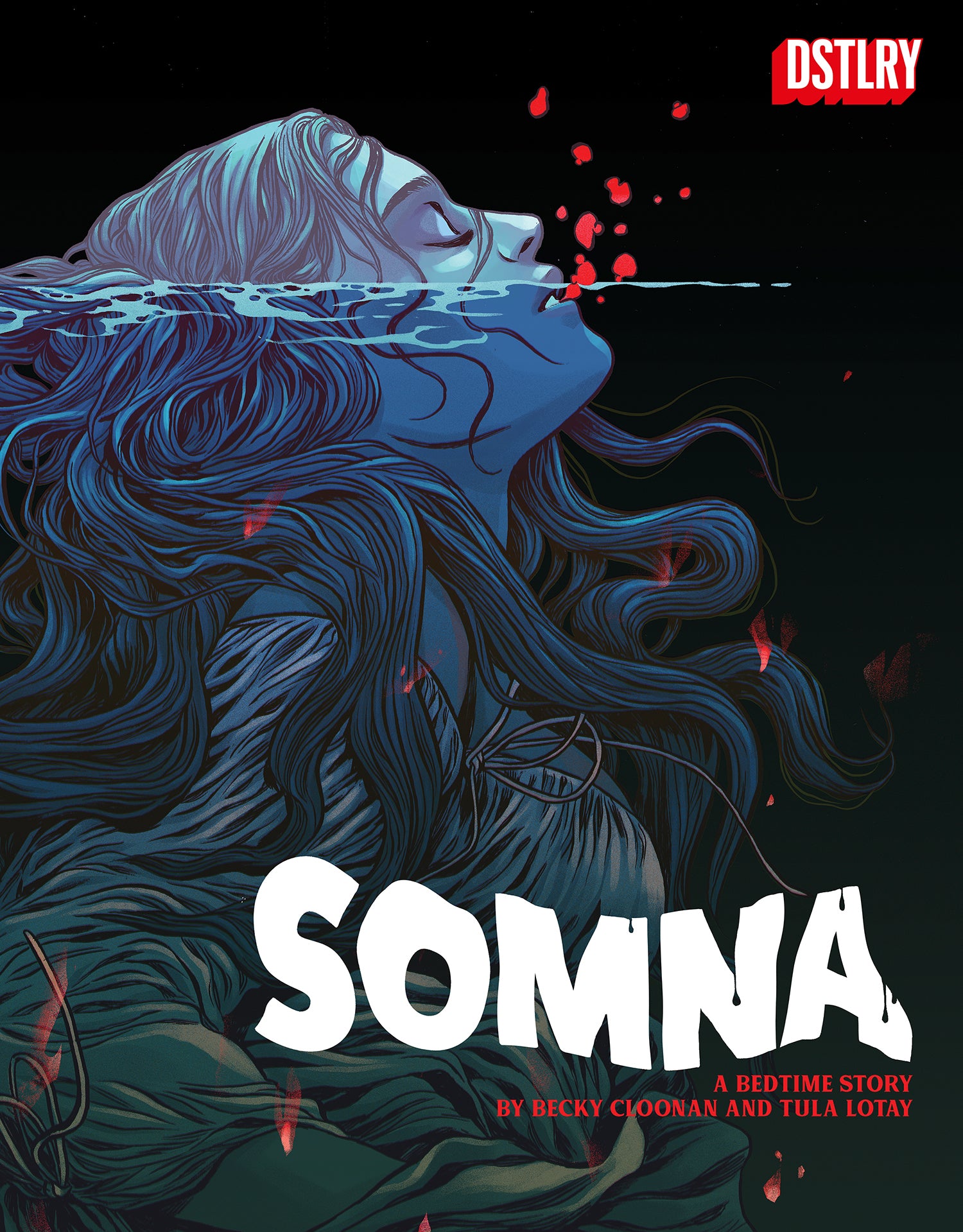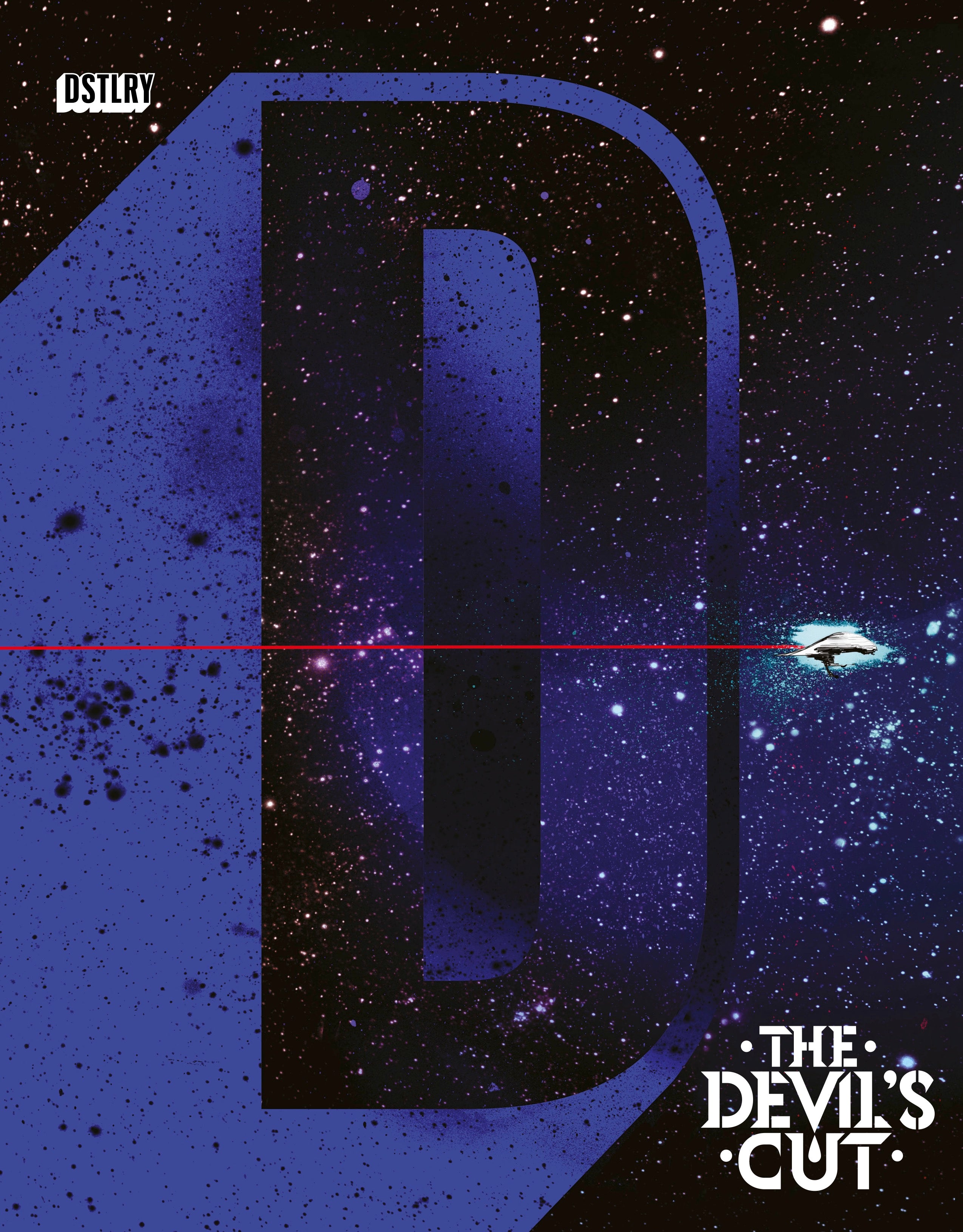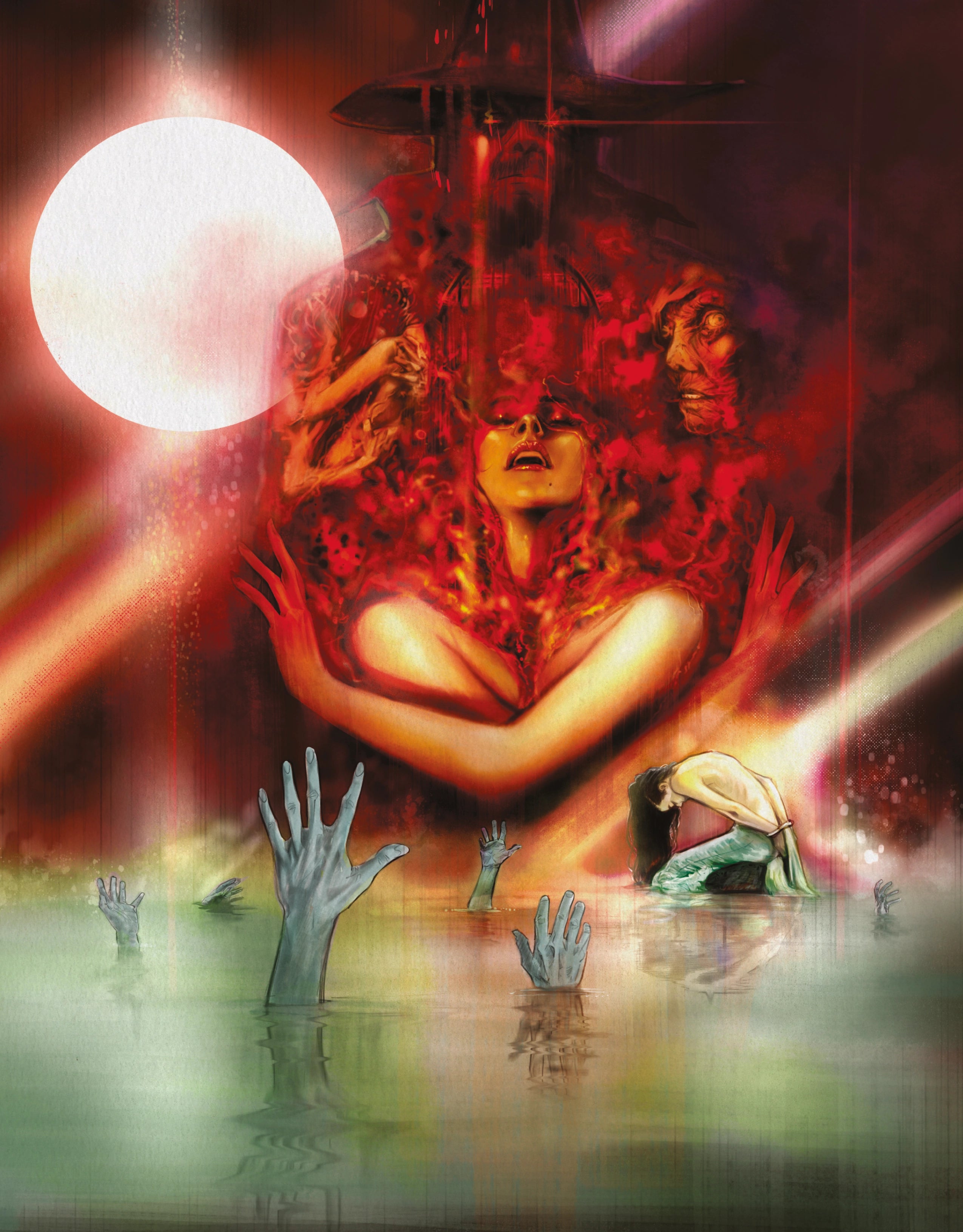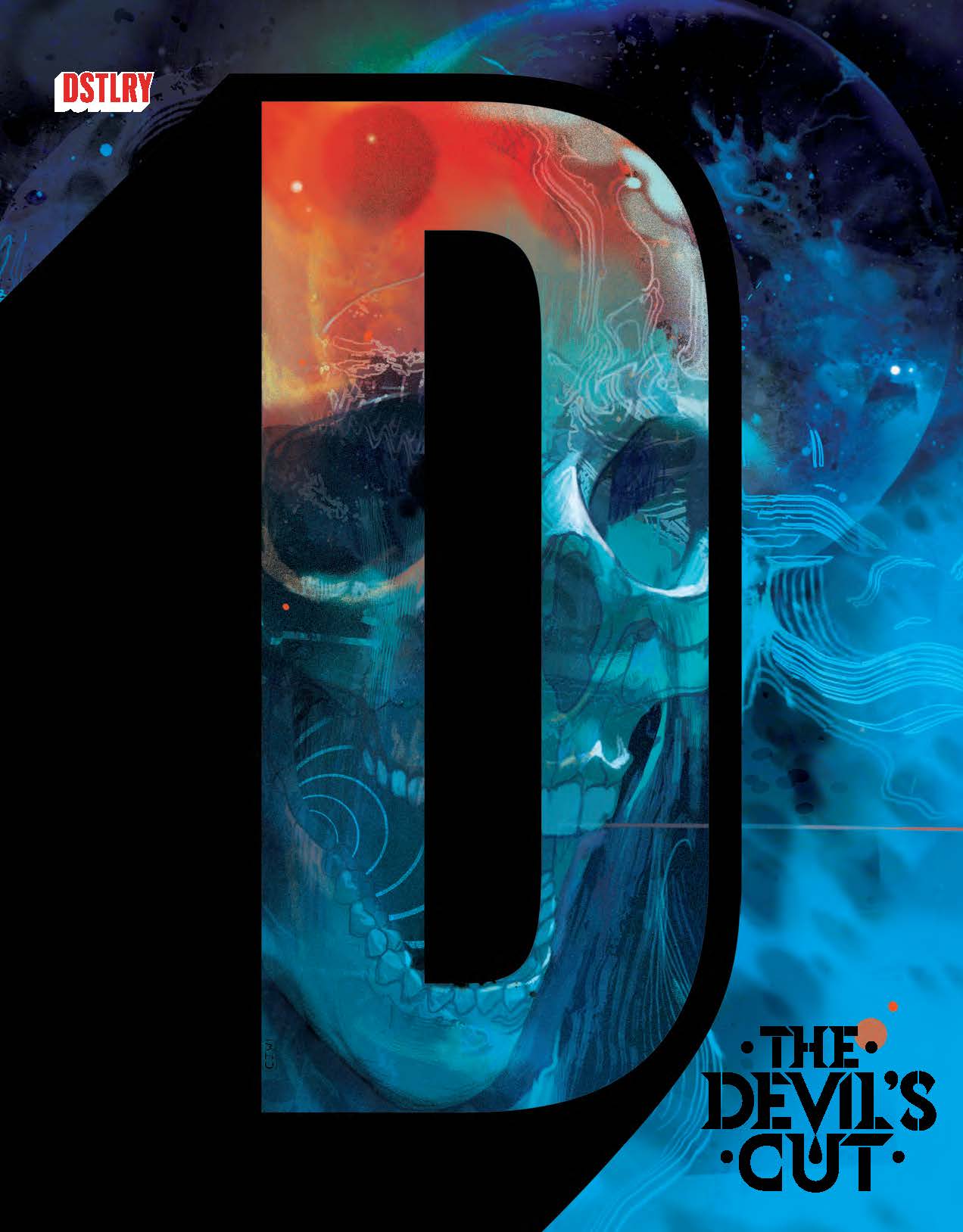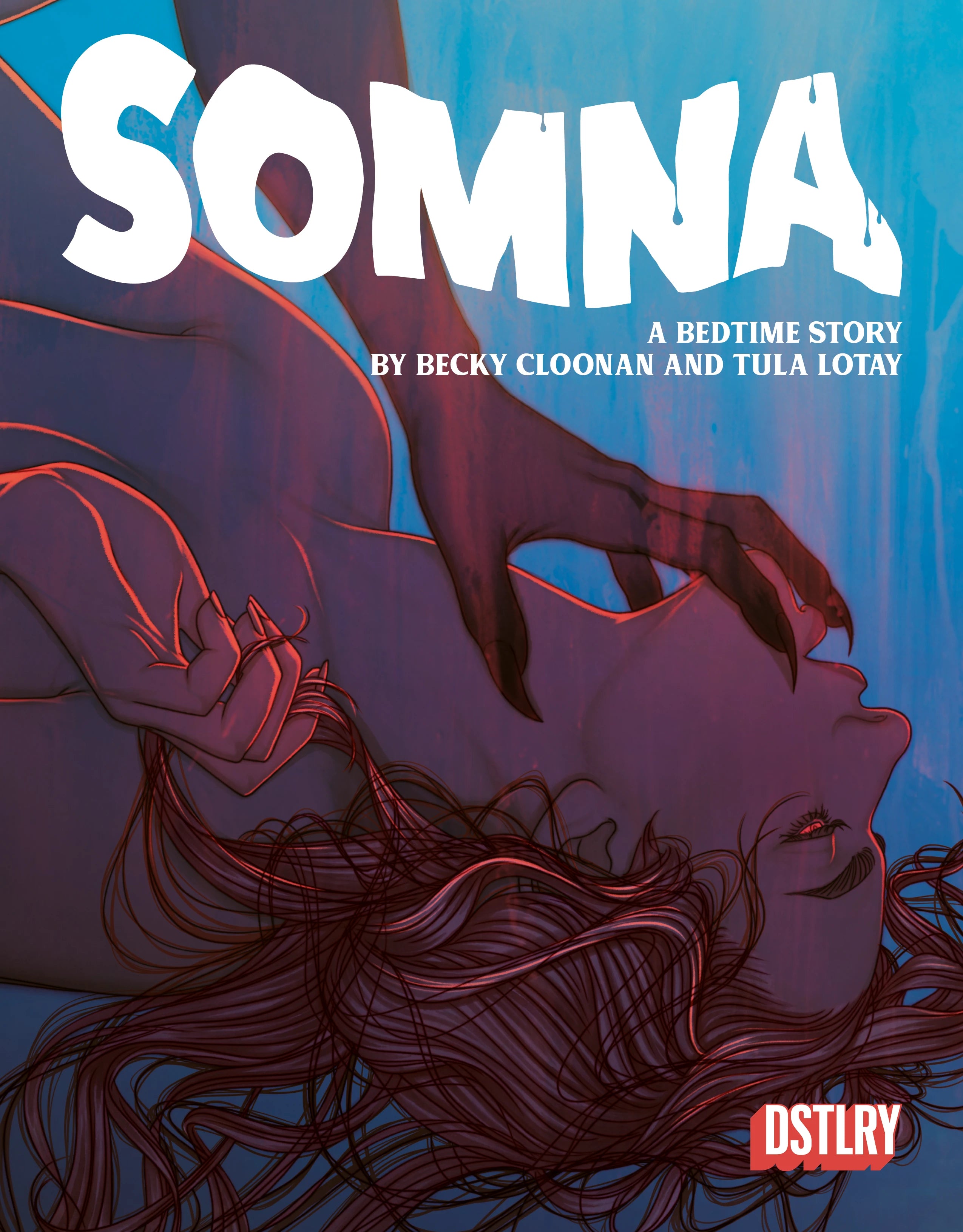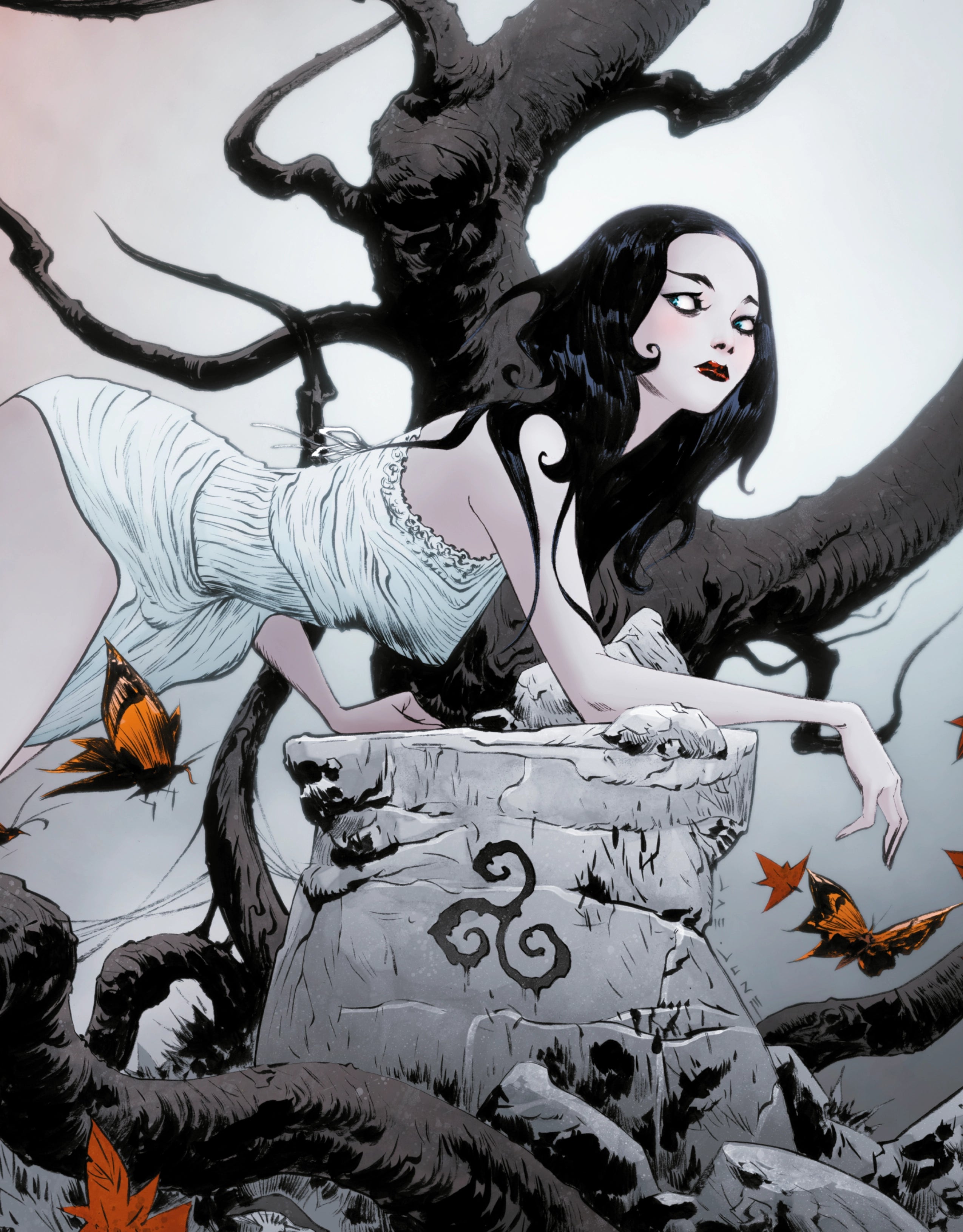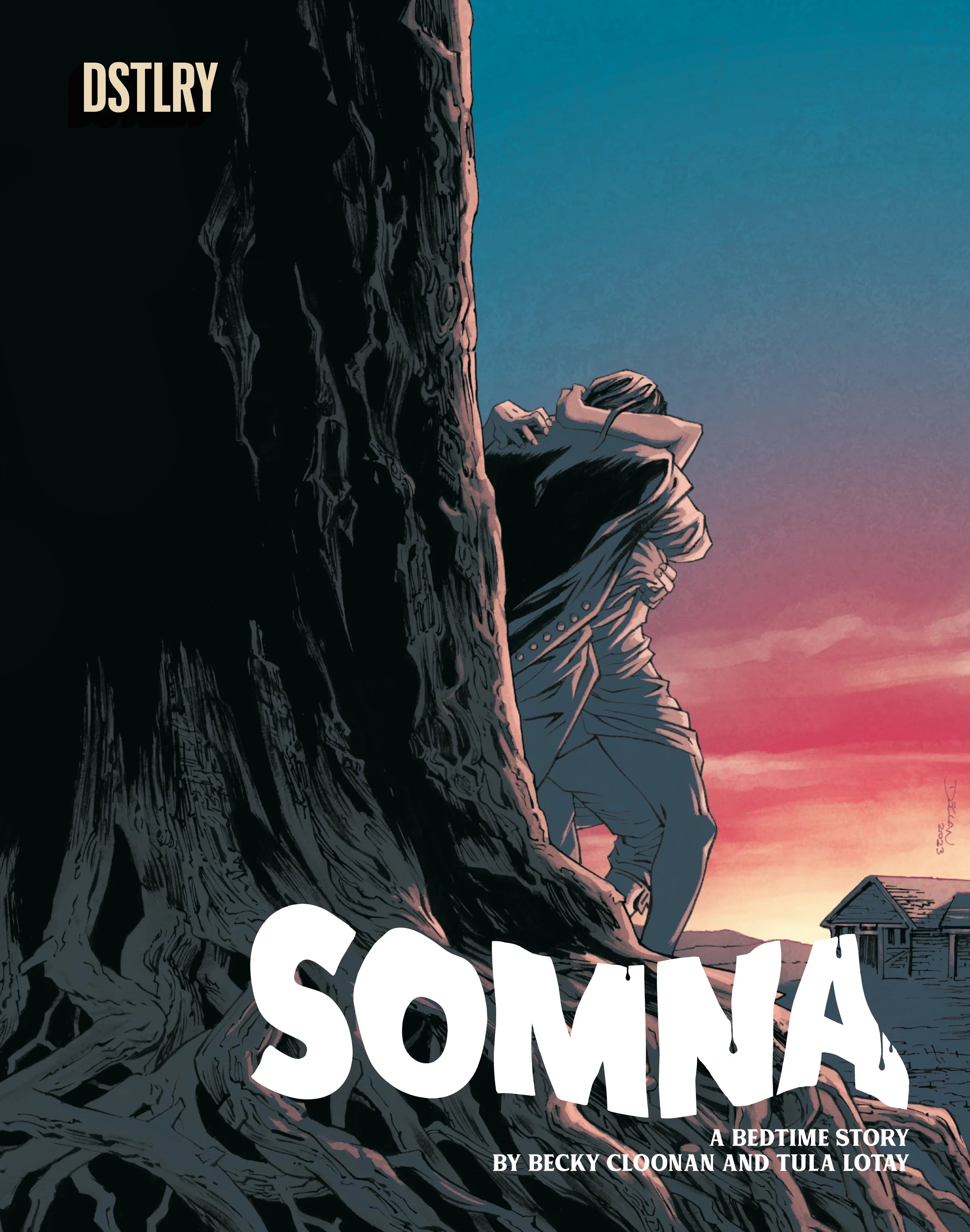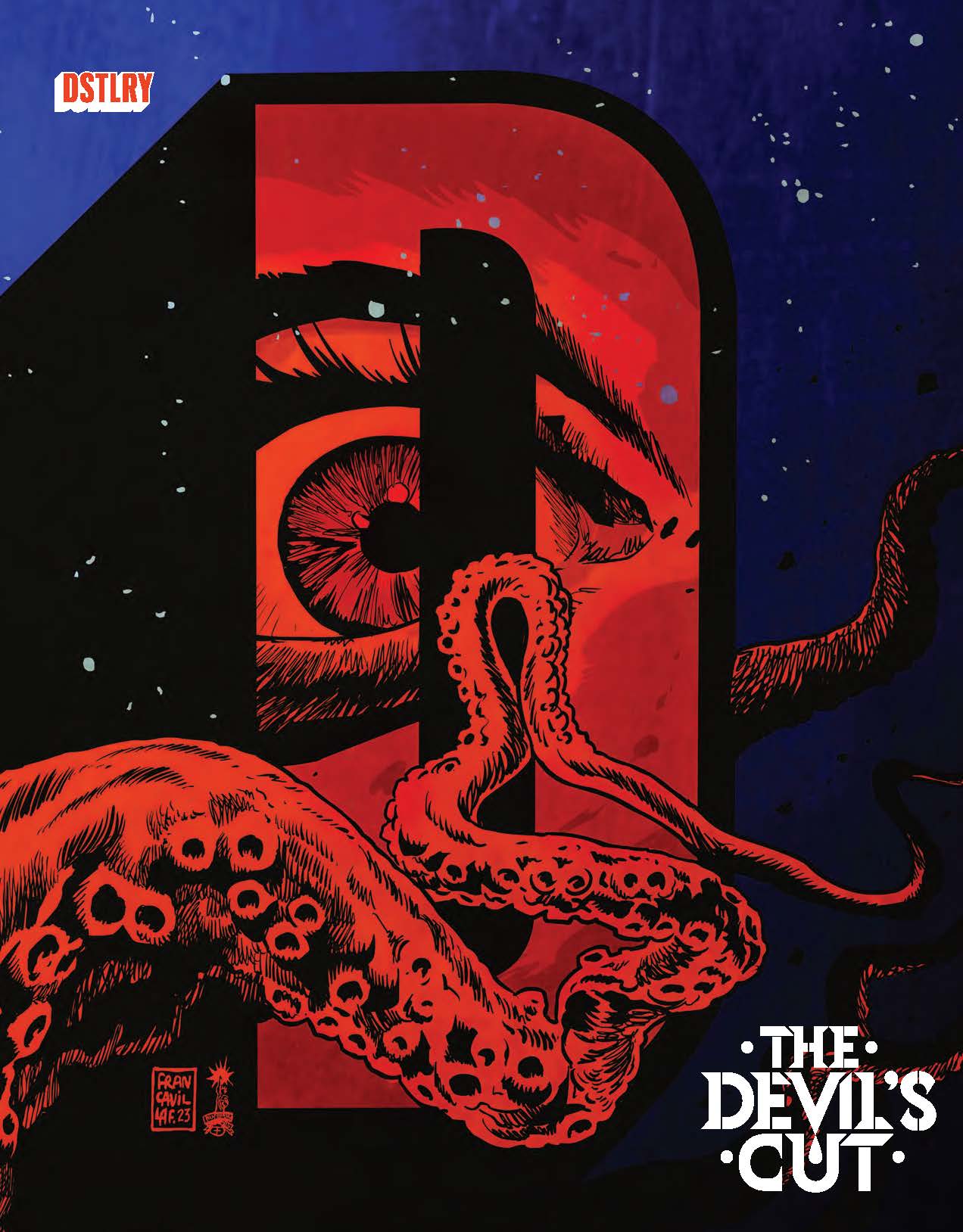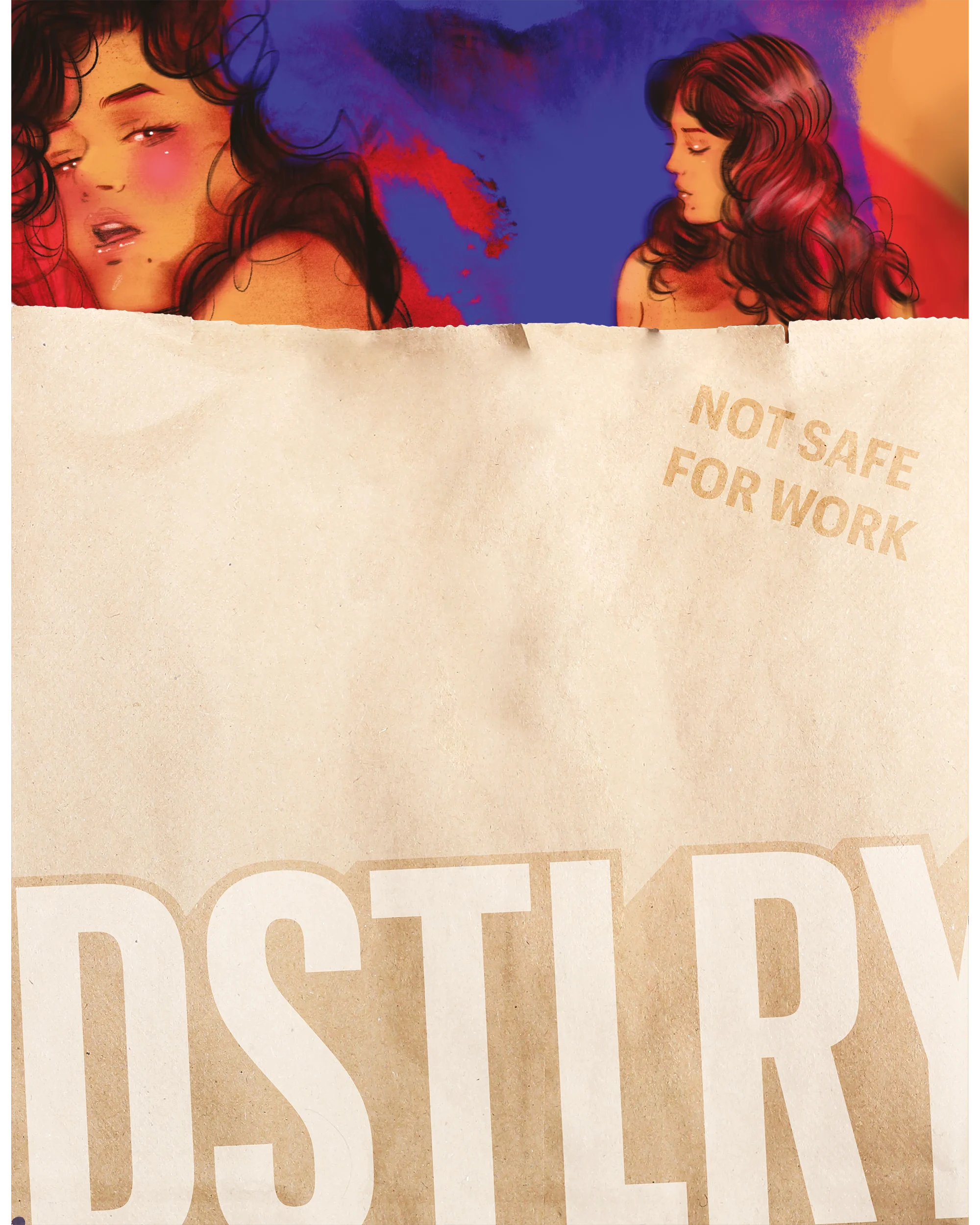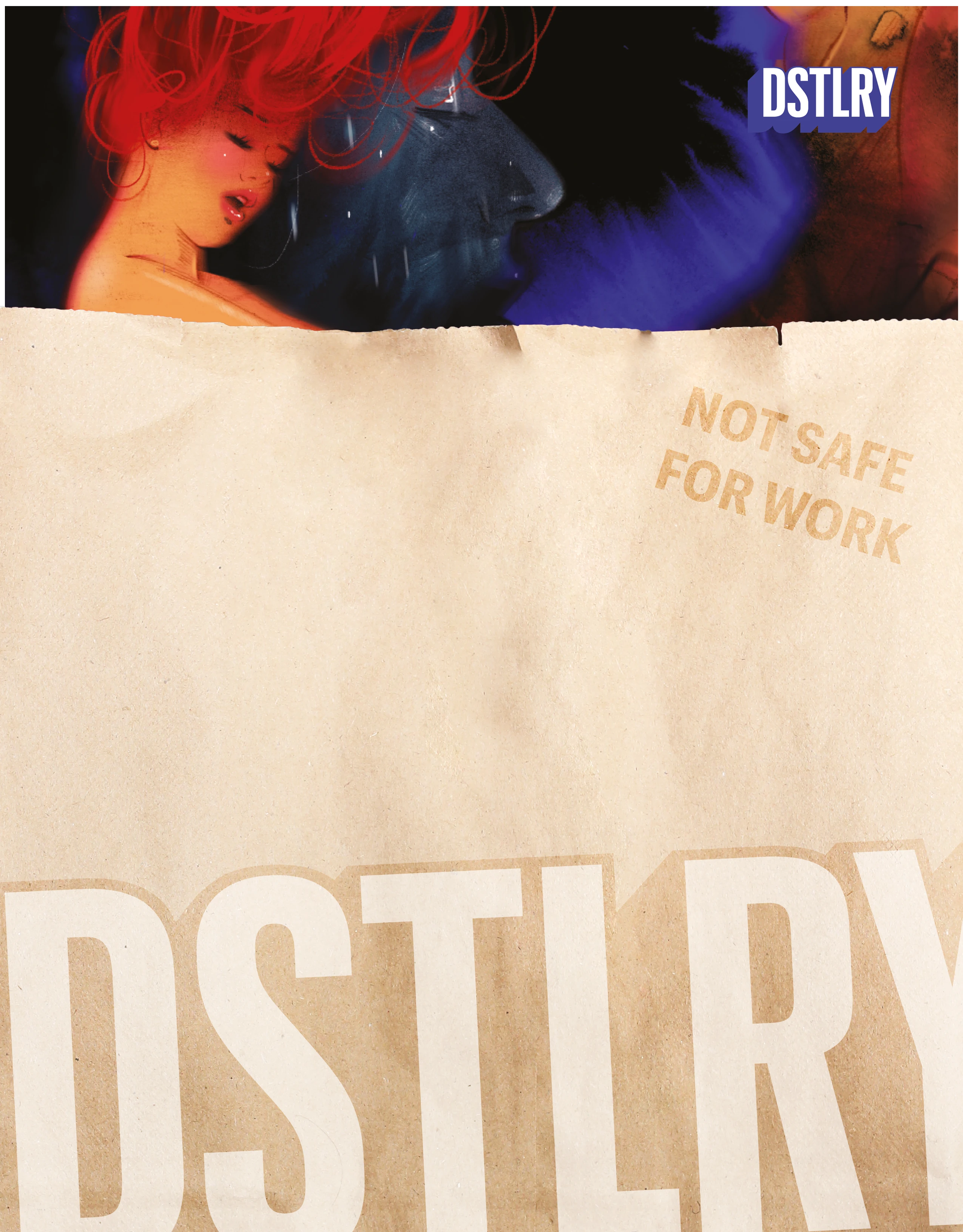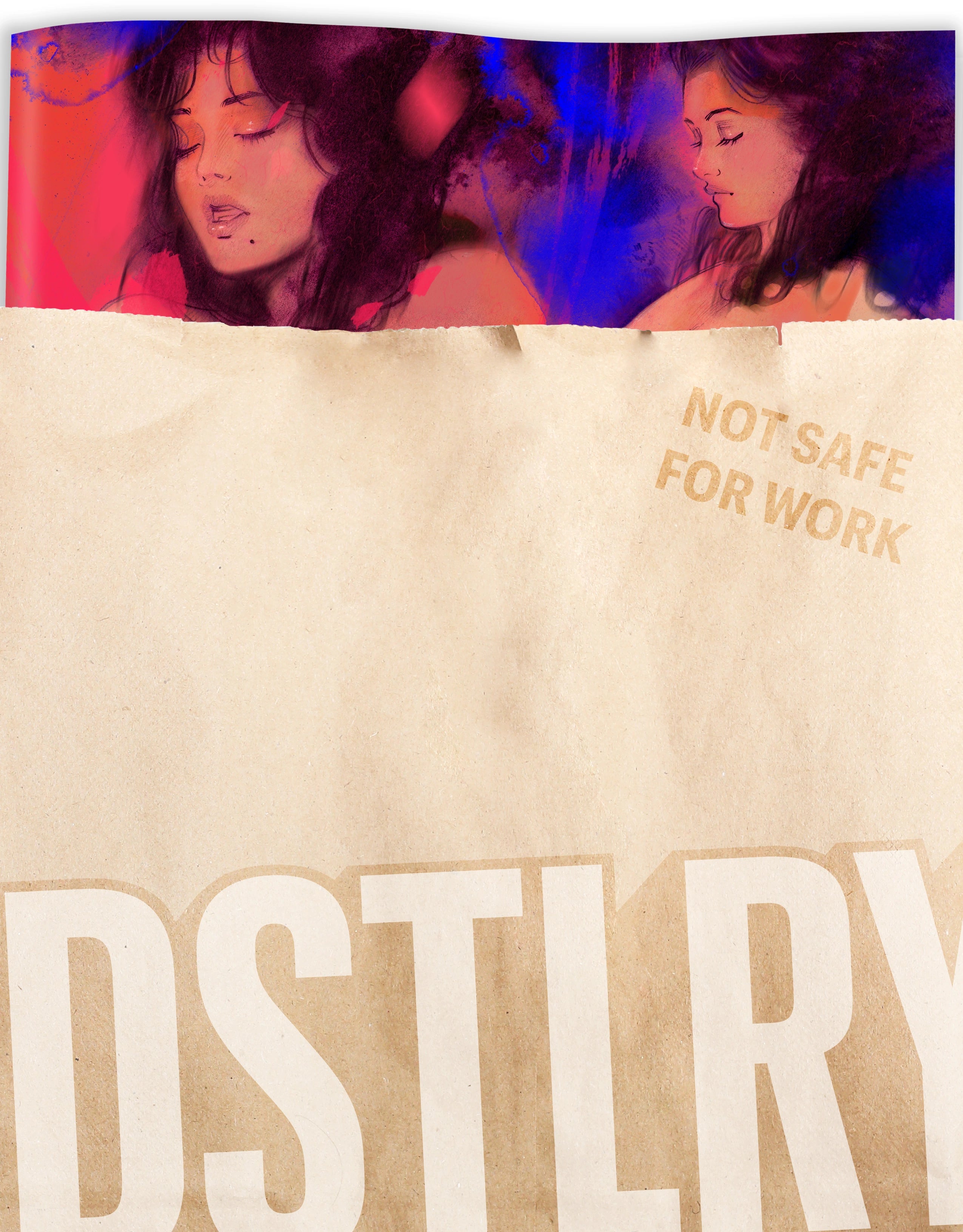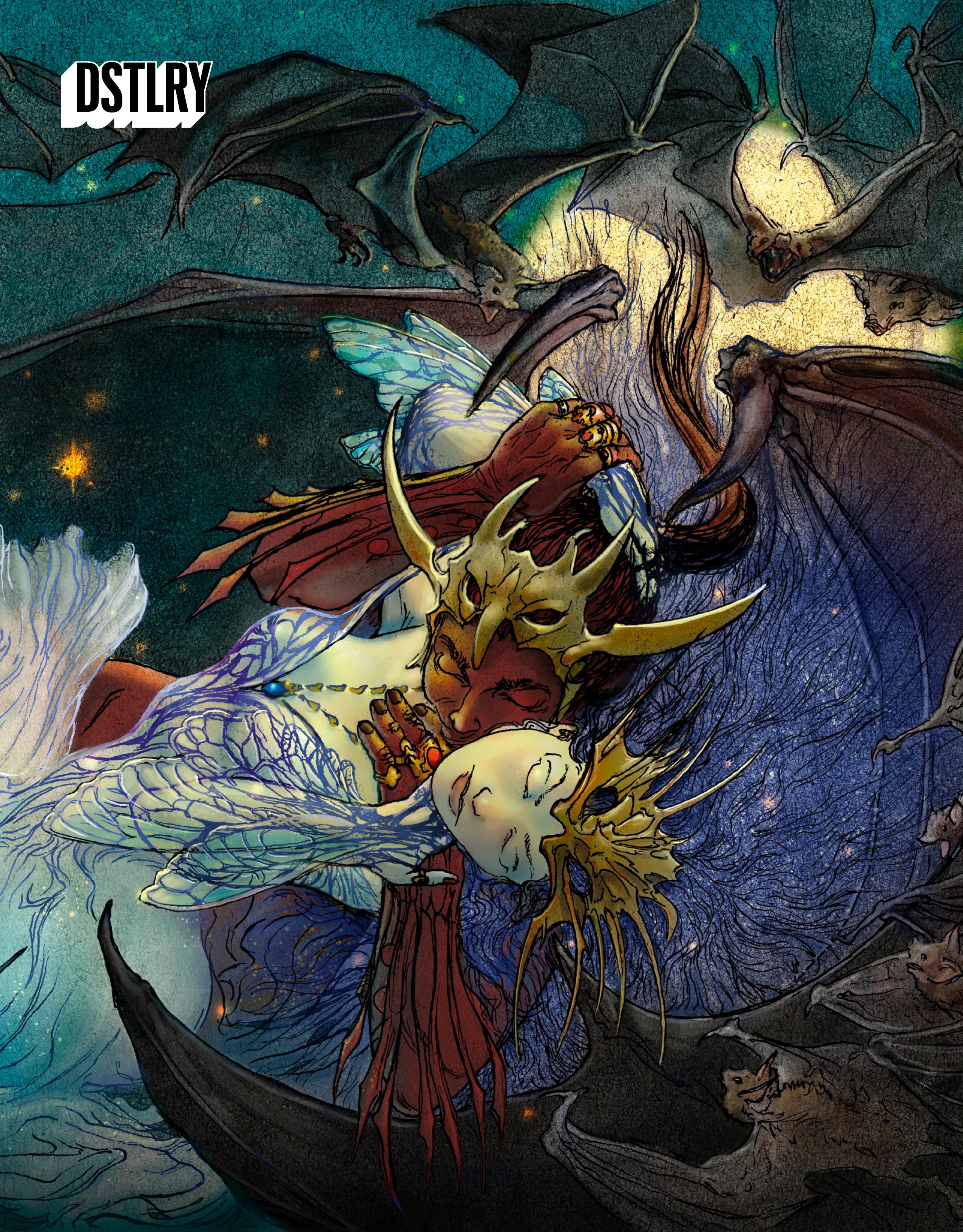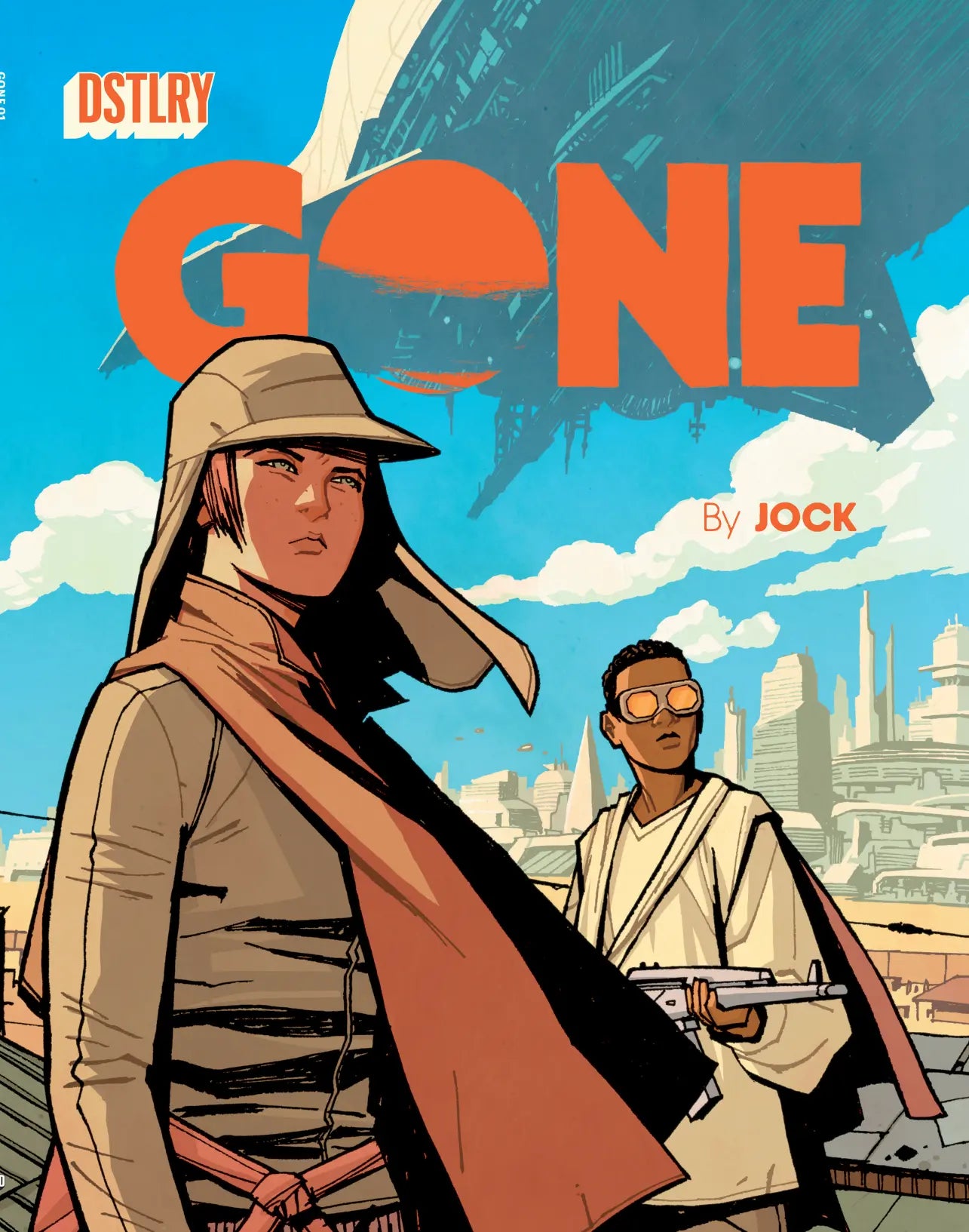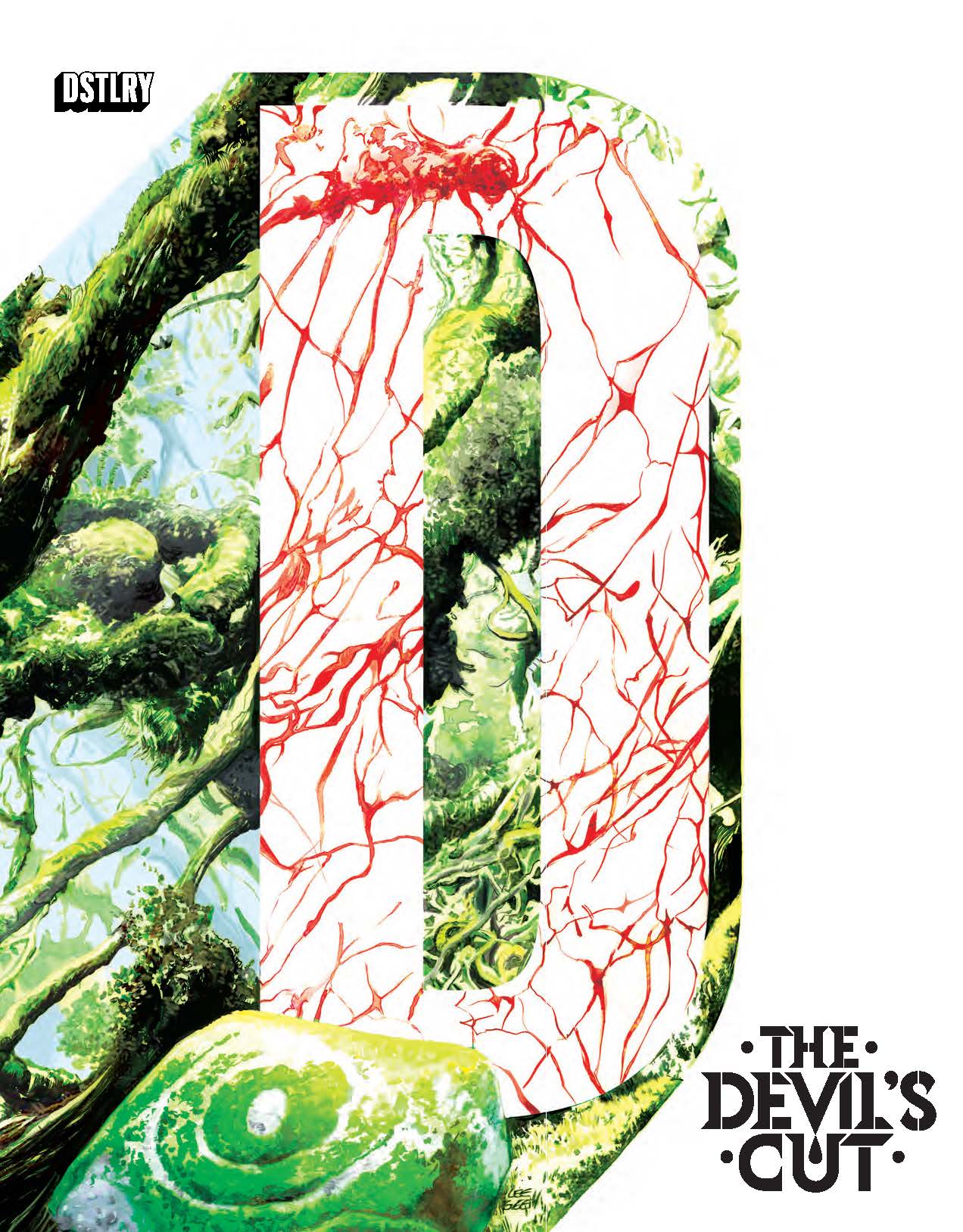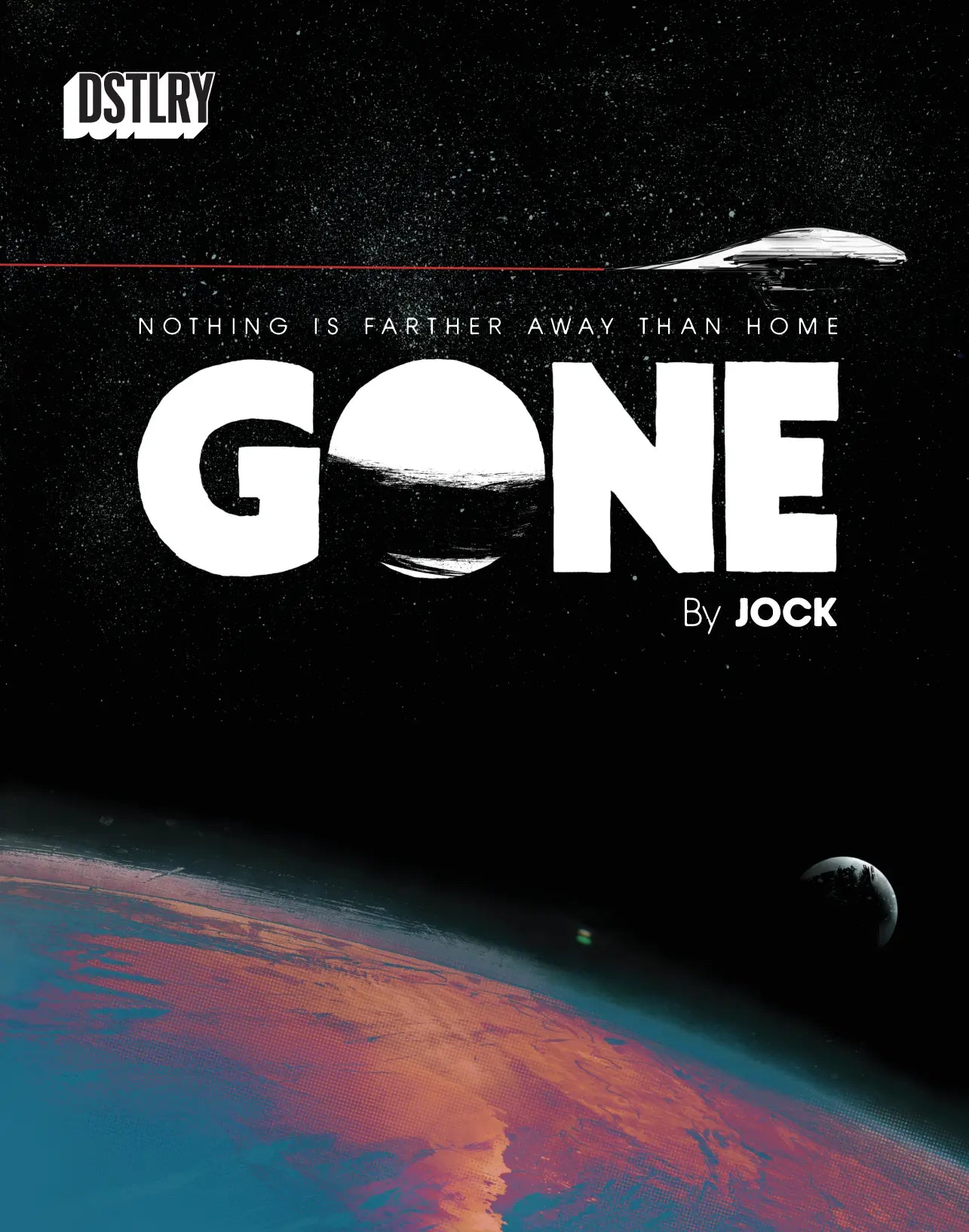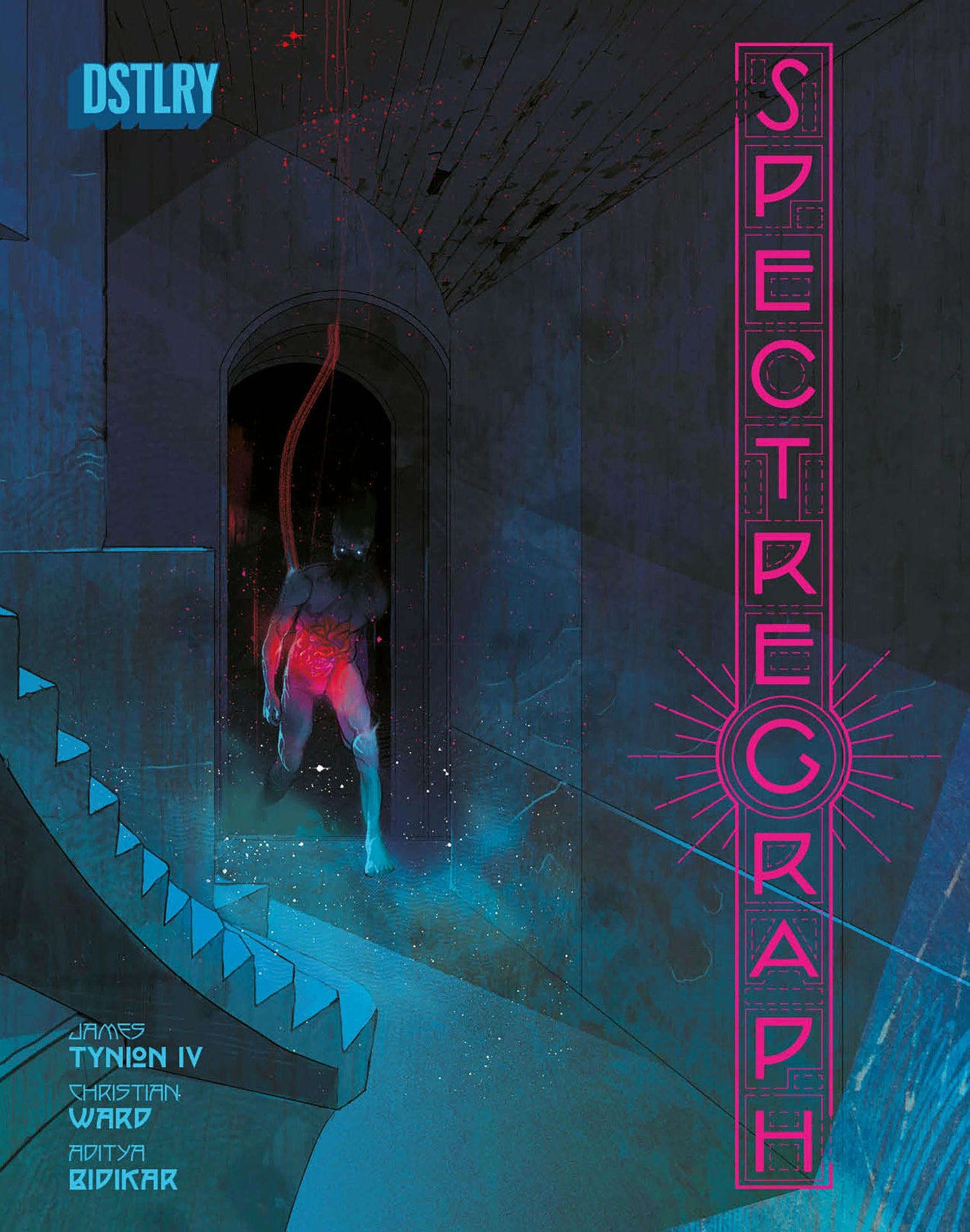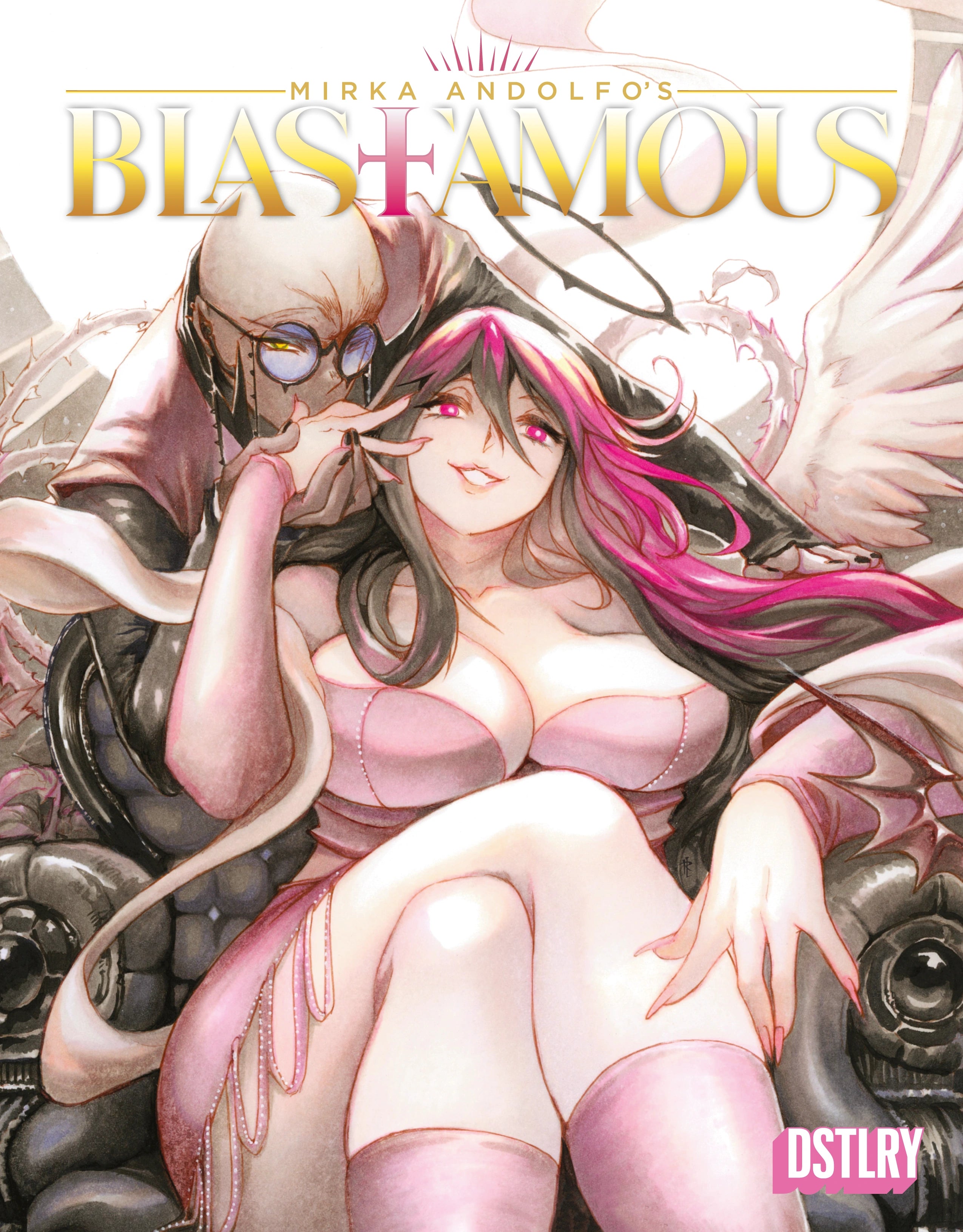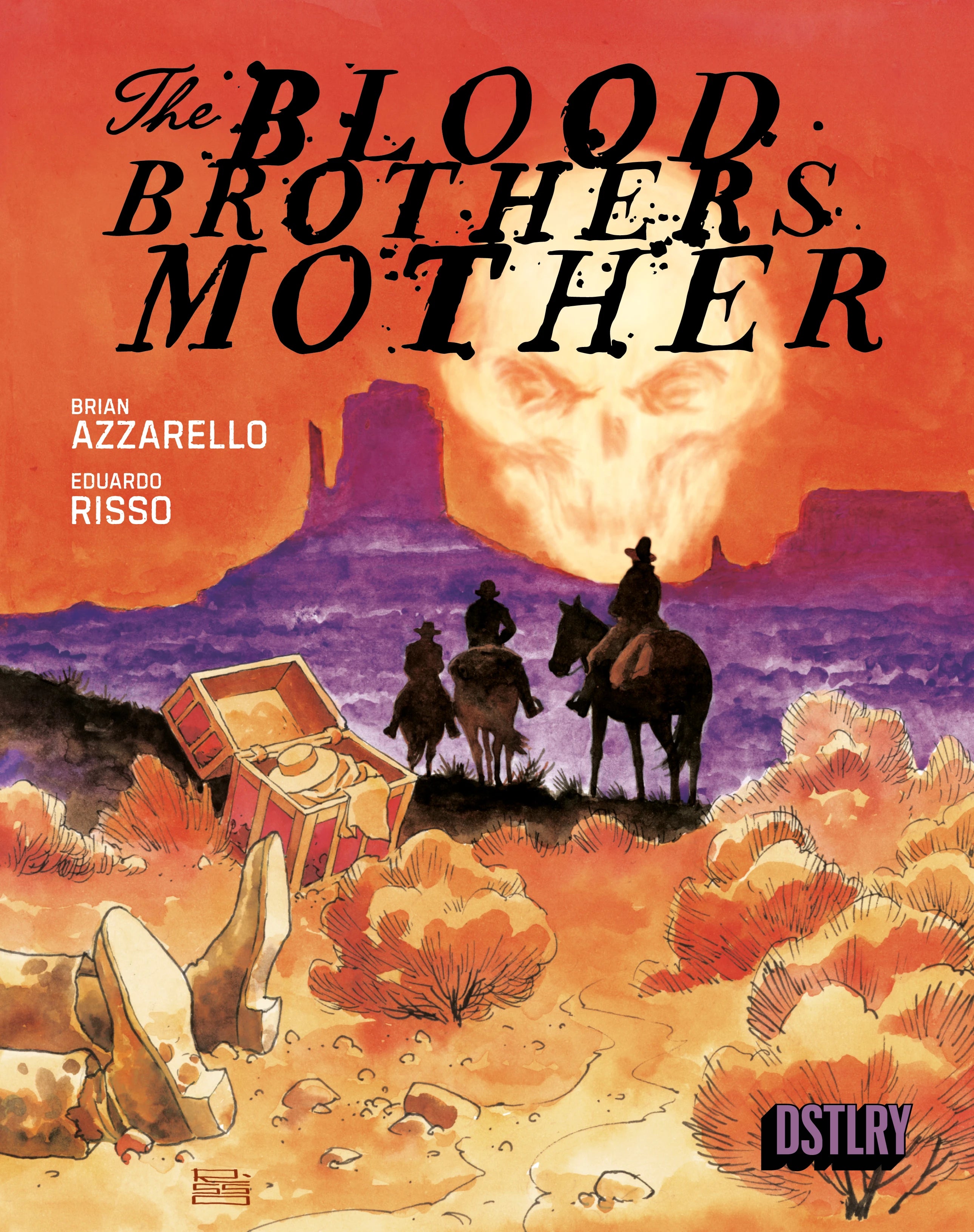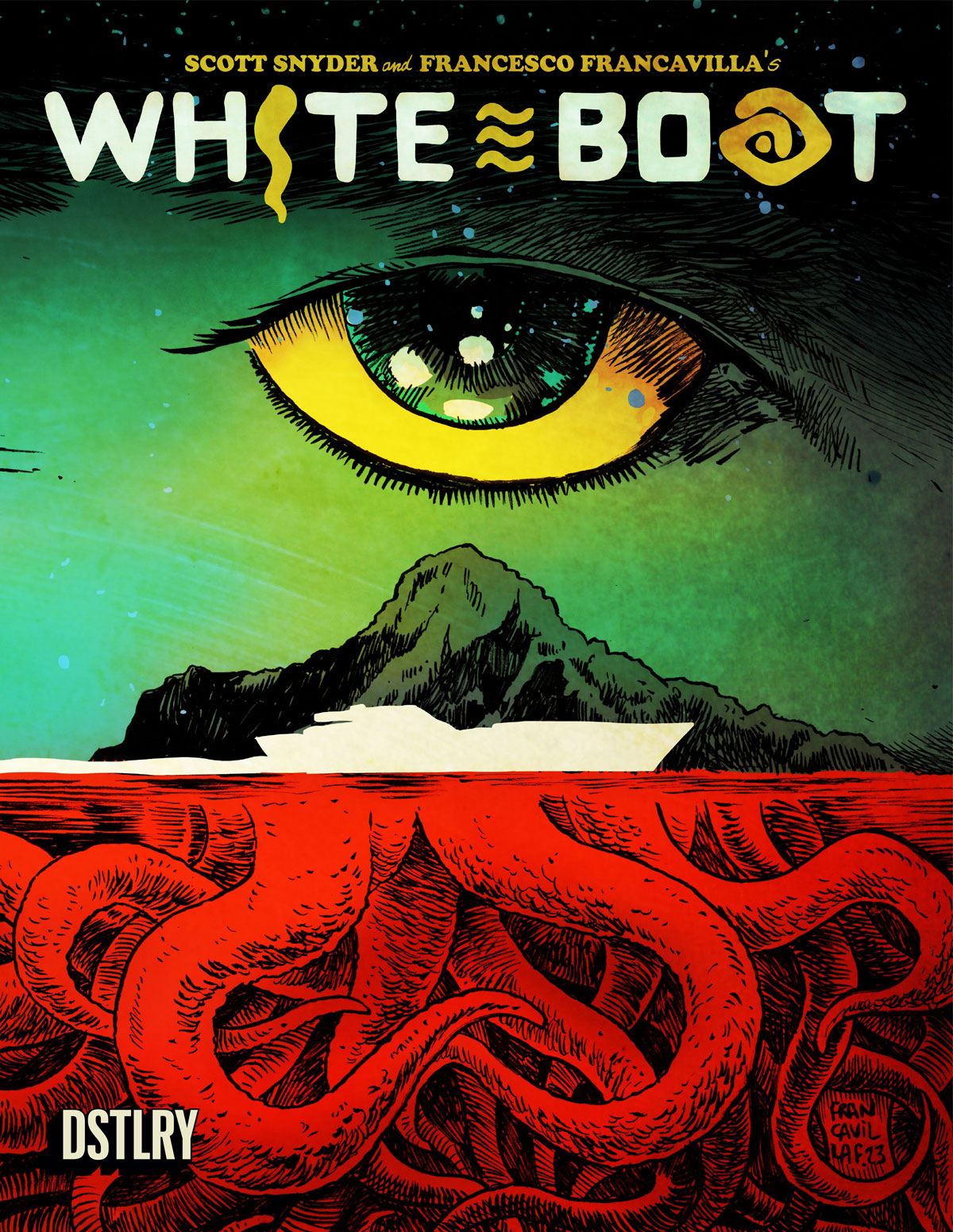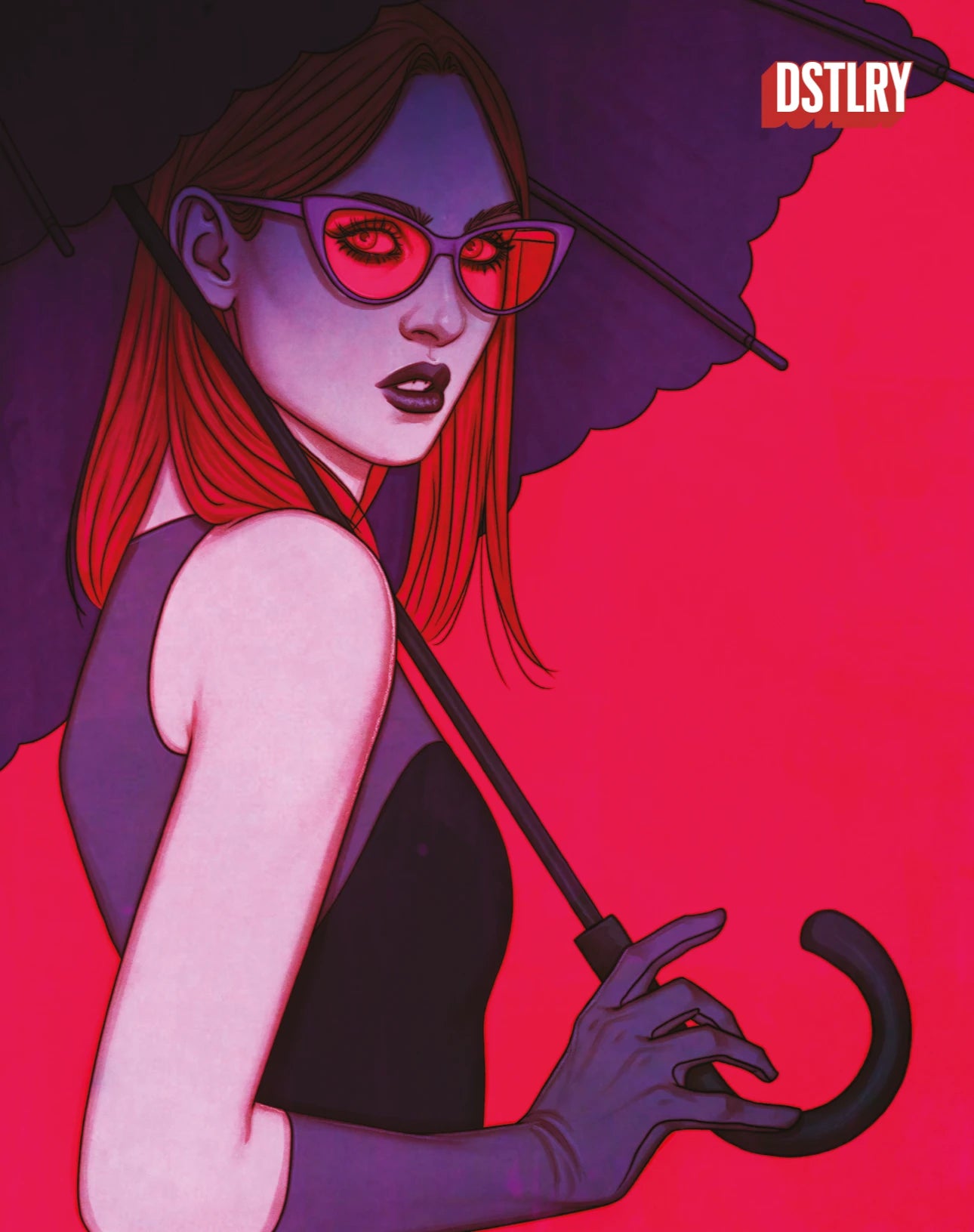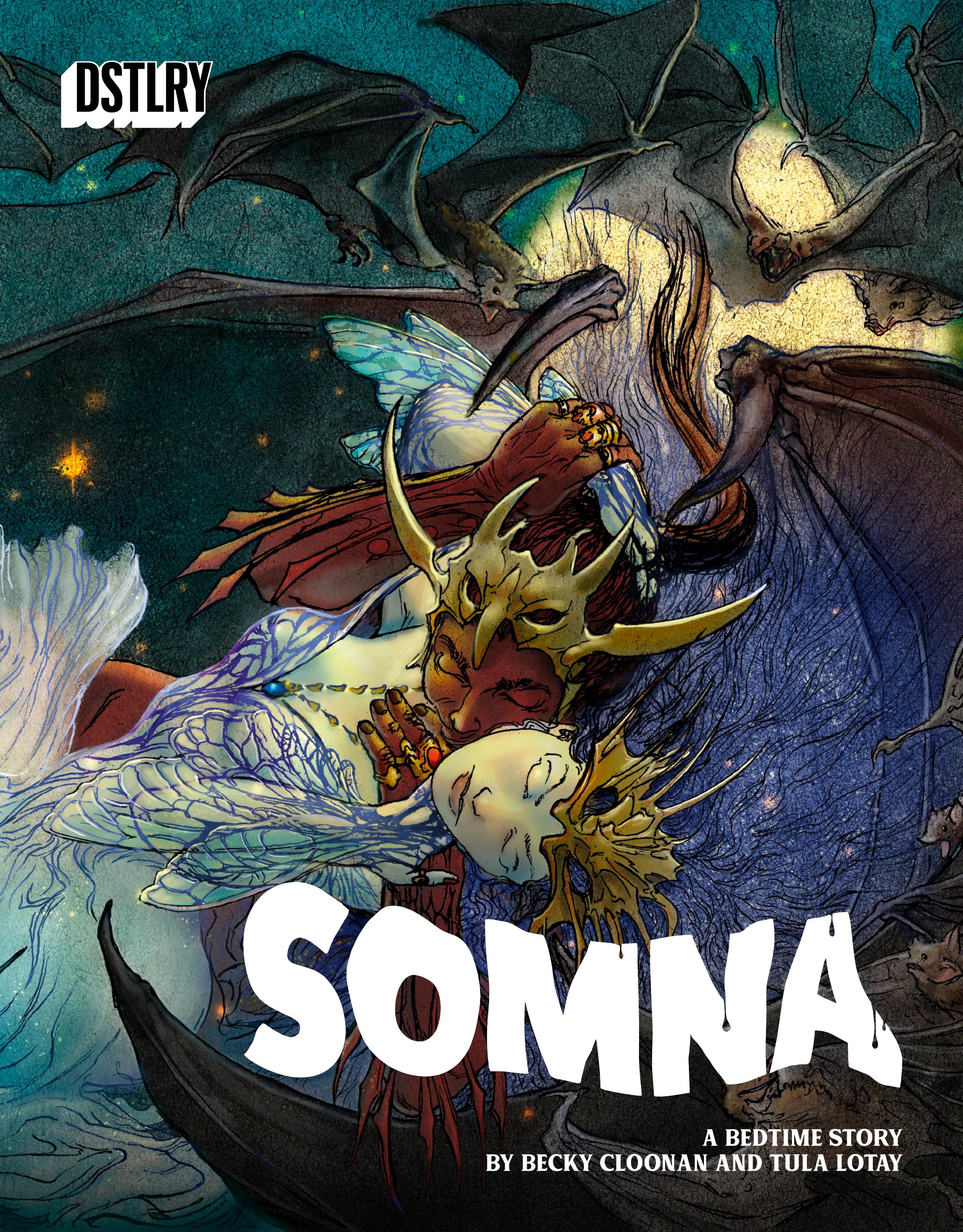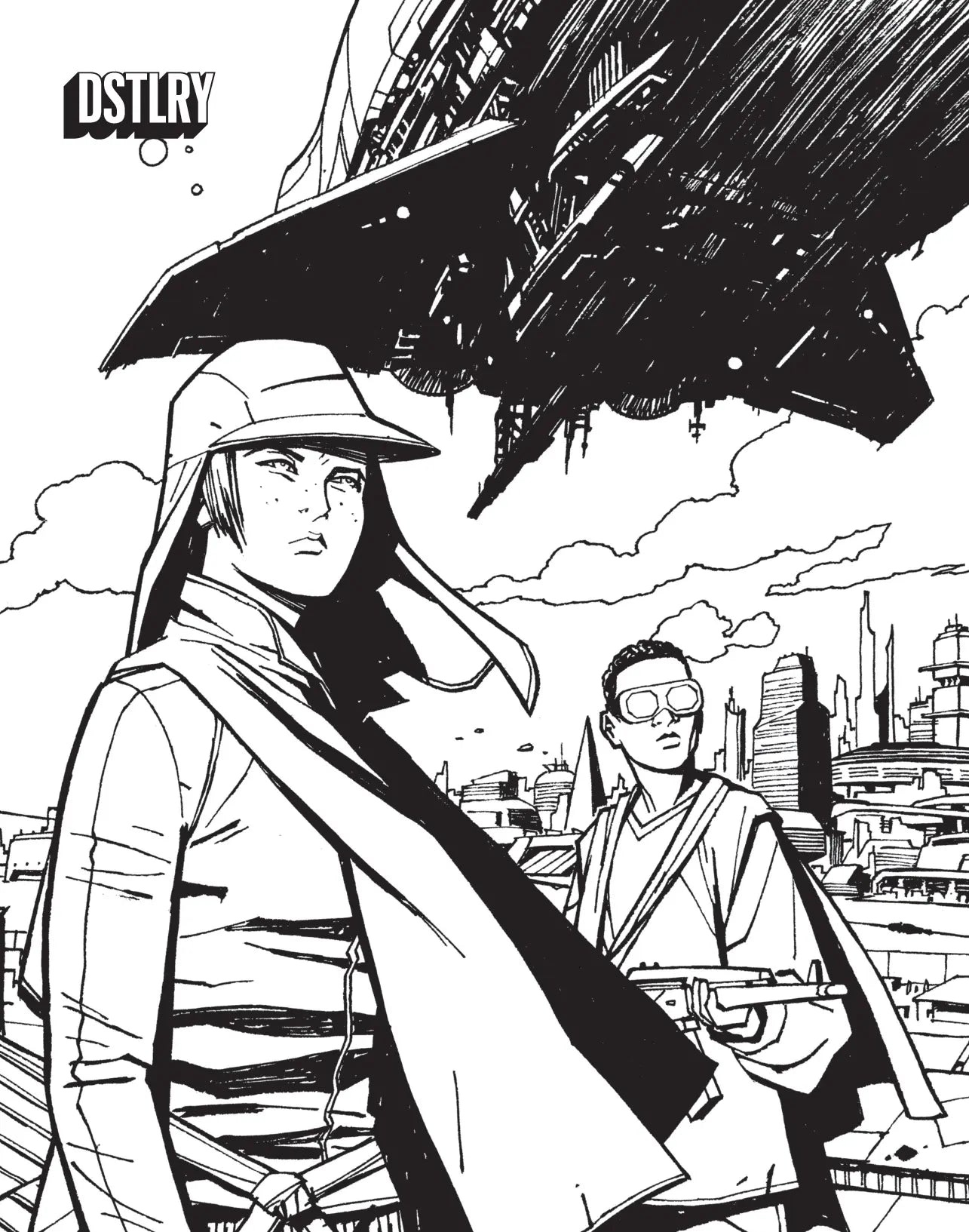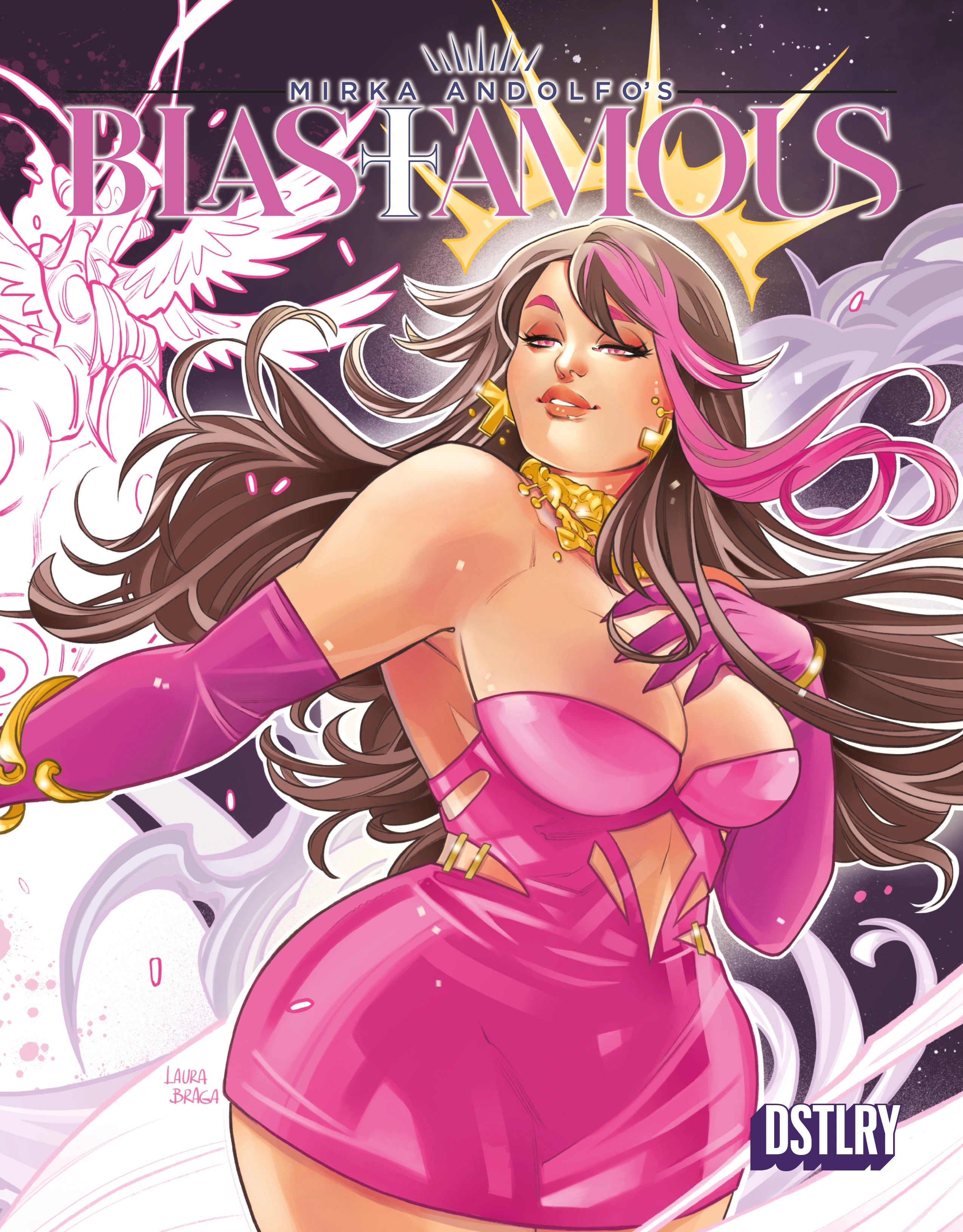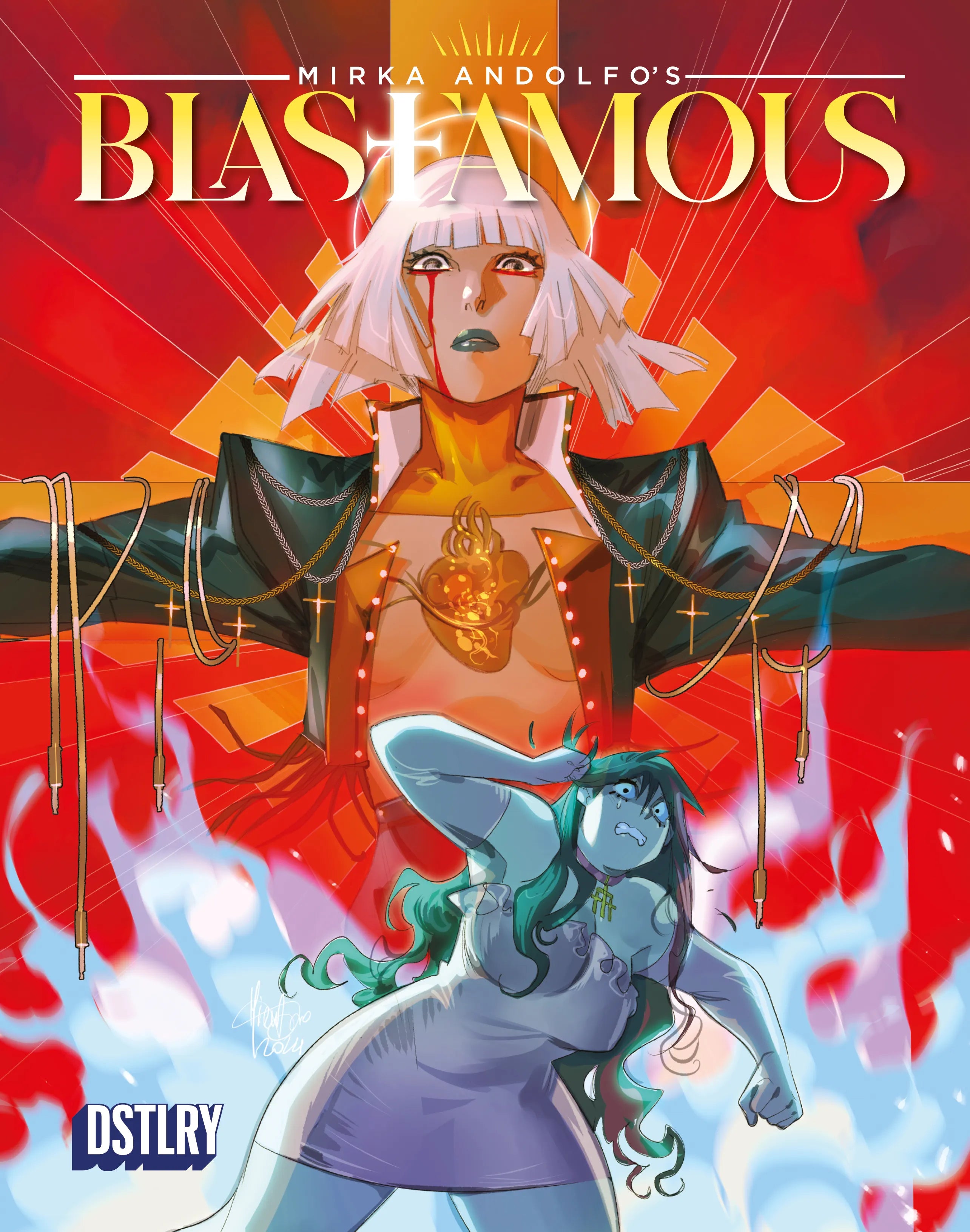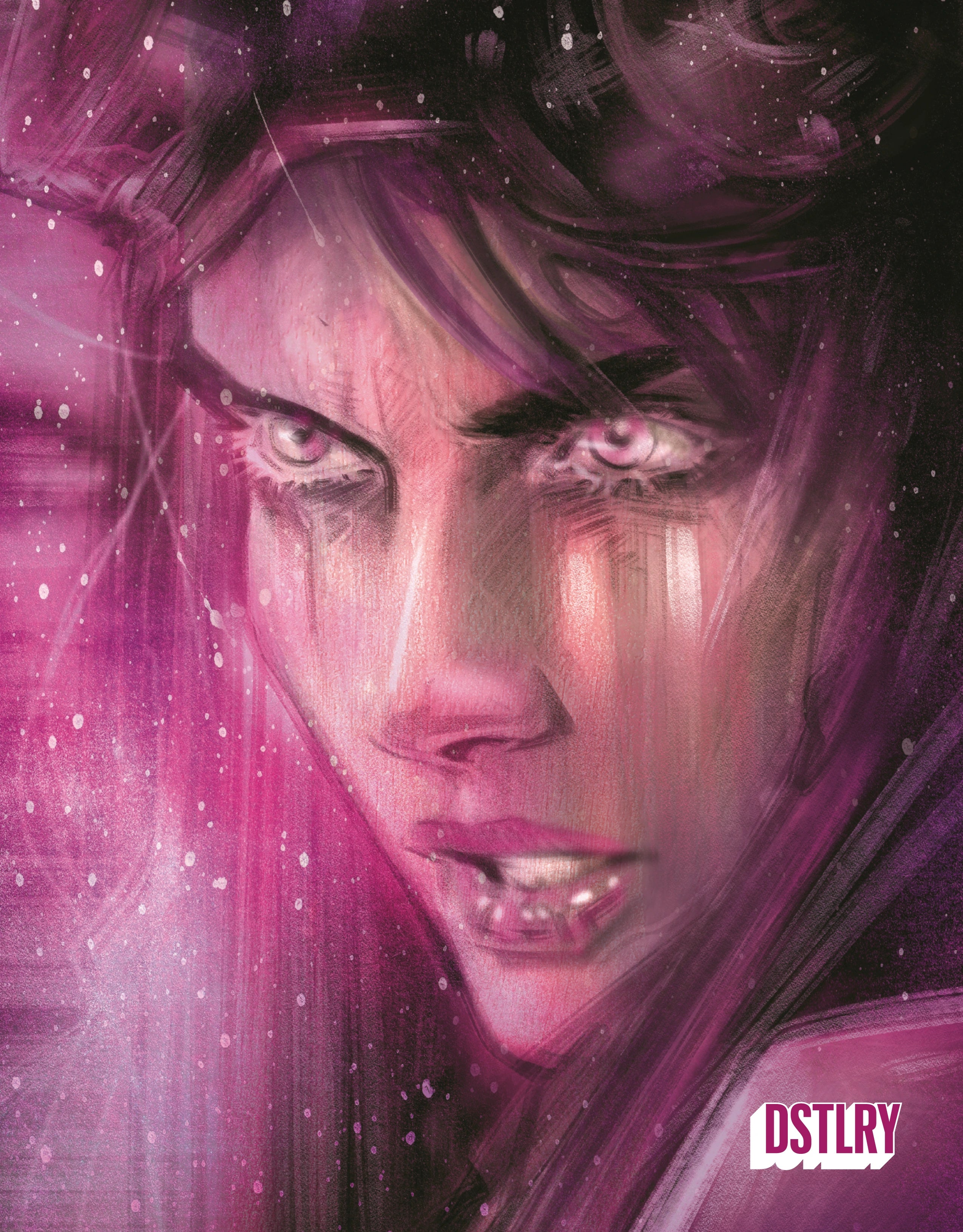Scott Hoffman & Alberto Ponticelli on Synthesizing Dystopian NYC Noir in WARM FUSION

Most music fans know Scott Hoffman as a member of the iconic disco/glam pop trailblazers Scissor Sisters, but comic fans recognize him as the writer of Nostalgia, Wag and other recent projects that merge just as many influences into sucker-punch narratives. This December, Hoffman will team with acclaimed artist Alberto Ponticelli of Frankenstein: Agent of S.H.A.D.E. and Orc Island fame on the science fiction noir title Warm Fusion.
Warm Fusion introduces a nightmare-fueled future New York City plagued by residual radiation from a terrorist attack that's caused grisly genetic mutations. In response to a series of brutal murders in the city's sex worker community, a detective teams up with a fairy tale princess-cosplaying escort named Vin to unravel the mystery festering in the city's darkest alleys. All the while, a malicious scientist is subverting his own horrors deep in the recesses of the city.
JK Parkin spoke with Hoffman and Ponticelli about the project and what fans can expect from Warm Fusion when it launches on December 4th. To preorder, hit up your local comic shop before 12/28 to ensure this body-horror opus lands in your pull. DSTLRY has also announced a new cover from Tula Lotay (Somna) and a 12-inch vinyl featuring music from Hoffman and Die Antwoord DJ Hi-Tek.

Warm Fusion #1 Cover A by Alberto Ponticelli
When did you first discover comics as a reader, and when did you know you wanted to create them?
Alberto Ponticelli: I guess I discovered comics when i was a child. I used to read everything I could find, so I started with some Disney stories (I was six or seven), and immediately after with some superhero stuff like Spider-Man, etc (but I was in love with stories like Kamandi, Conan, etc.). And then all the French bande dessinèes from the Humanoids, like Moebius, Druillet, Caza etc. They really made me want to draw some comics, so I started when I was 16 and I never stopped.
Scott Hoffman: I grew up reading everything I could. The stranger and more fantastical the better. It ran the gamut from William S. Burroughs to Clive Barker. I got into Batman comics around the time the property was taking an even darker turn through the '80s and into the '90s, and that eventually led me to Vertigo. I was pretty wowed by what was happening there.
When I want to college, I studied creative writing along with my English major. I was a pretty bad student of literature, but I was a math kid who wanted to say something about the world, and I wanted to learn how to write: prose, comics, maybe something for film. I just took a short segue into music before I figured out how to approach it.

The Warm Fusion 12" Vinyl, Available At Your Local Comic Shop
When did the idea for Warm Fusion come about, and what brought the two of you together to work on it?
Ponticelli: Scott and I started chatting about the possibility of doing something together, we discovered that we had fairly common imagery, the same passions for certain comics, films etc.
It was easy to create a connection right away, and then Scott proposed this idea to me, where everything is dirty, humid, and nocturnal, but also full of neon and humanity of all kinds. How could I say no to him?
Hoffman: I had an idea about a world that had become toxic, almost too toxic to support life, and it probably isn’t too much of a stretch to see how I was inspired by the world we’re living in now. That developed into a focus on someone who was forced to physically adapt in that world, and the idea sprouted from there. I asked my friend Sam Stewart, a fellow writer, to help me expand on the idea, and it turned into a semblance of what ended up on the page.
I knew of Alberto’s work from a couple of his books and found myself ogling his Instagram and shooting him a message to see if he’d be open to a chat. When we connected over body horror and anime among other things, Warm Fusion just felt right.
Let's talk a little about the world you're building here. Scott, what can you tell us about this dystopian future you're building? Alberto, what were you hoping to capture visually as you created this irradiated version of New York?
Hoffman: So, back to that toxic world. I was thinking about the kind of toll that trauma would take on people emotionally, how it would affect their sense of hope and, even more insidiously, imprint on their motivations and desires. So that was the New York City I was building, maybe one that felt only vaguely familiar. That’s one thing I’ve learned about New York from living there on-and-off for over 30 years: that it’s always changing, becoming unfamiliar, leaving certain people behind and welcoming others.

Warm Fusion #1 Cover By Alberto Ponticelli
Ponticelli: I would like to convey the feeling of living a kind of nightmare in first person, because now every type of dystopian setting is increasingly closer to the real world, which often surpasses imagination. So I hope to create something claustrophobic, because no one can feel comfortable in the world of Warm Fusion.
The comic features a detective and an escort teaming up to try to solve a series of murders. What can you tell us about each of the main characters? How well do they work together?
Ponticelli: Ask Scott, i’m curious as well, but he didn’t spoil anything for me, lol.
Hoffman: This story went through a huge change after my editor Will Dennis kicked my ass on the first draft; I wanted to tell a sort of procedural through the eyes of a pair of detectives, the lead being our strong female who eventually became Vin. Will yawned and sent me back to work, and after a lot of frustration I decided to turn things upside down. That resulted in making this lead one of the escorts herself, and I thought a lot about her strength and agency: she’s put into tough situations but she’s never a victim. It also made me excited about Vin’s relationship with Hannover, our detective, who is doing his best in an overwhelmed police force on top of dealing with citizens who have lost faith in the system.
In terms of our villains, I realized that this world deserved more than one. Not only are the father and son (Wolfgang and Nicholas, respectively) who run Prophetiq, the biotech company that creates Warm Fusion, almost inhumanly monstrous, we get some monstrously inhuman surprises to round it out. Mr. Barnaby is Nicholas’ assistant in sociopathic experimentation, and another monster skulks around as well. I really see the core antagonist as a triple-villain, three facets of the same damaged soul.
The title refers to one of the story elements—can you talk about what "warm fusion" is in the world you've created?
Hoffman: Warm fusion is an experimental technology that we will learn more about as the story progresses. As with anything meant to help, in this case a material created to extend flesh through a type of cellular metal, you’d be right to be cynical about what the dangers, and intentions, are. In particular, I was interested in the cold nature of medical technology and where our attempts to fuse ourselves with that tech, to make it ”warm,” if you will, would lead.

Warm Fusion #1 Cover C by Ariel Olivetti
What are some of the influences you're pulling from as you create this story?
Ponticelli: An early scene of The Warriors has always struck me deeply visually: a completely black night sky, which also absorbs the background of the city and leaves no recognizable shape, if not through a few lights. I have always found this scene really disturbing. I started from there to create the atmospheres of Warm Fusion, then mixing them with the imagery of the '80s and the science fiction various films such as Brazil and Blade Runner (obviously), but also a lot of cinema by Shinya Tsukamoto and Takashi Miike and William S. Burroughs, for that feeling of a nightmare.
Hoffman: That’s fantastic. I liked the idea of a future with a bit of an '80s and '90s feel, which is something that Alberto and I discussed as we started. So I was of course thinking about a very specific moment in film that people like David Cronenberg and John Carpenter responsible for, but I was also thinking about Frank Miller noir and urban sci fi classics like Akira and how all of those things could be remixed in a fresh way.
One of the fun things about science fiction is that it can reflect on our own society. Are there any elements of this story that were inspired by current events?
Hoffman: There are a number of current events that affected the mood and incidents around Warm Fusion: environmental damage/toxicity, the repealing of Roe, the increase of gun violence and the growing power of gun industry, the increasingly corrupt health care industry, and, reaching even further back, events like Chernobyl and the Thalidomide tragedy. To name a few. It’s all stirred up in there.

Warm Fusion #1 Cover D By Charlie Adlard
Scott, you found great success in the music industry prior to working in comics. How has your music influenced your comic work, and vice versa?
Hoffman: Music to me has always been about fantasy and escape, from the moment I used to stare at album covers, put on headphones and disappear into that world. I think my band was a world-building exercise, something that invited people into a certain fantasy, and I don’t think writing is too different in that sense.
Alberto, I imagine creating comics for European audiences has allowed you to work in the bigger format that DSTLRY publishes before, but you can talk about the pluses and minuses of the larger format vs. the traditional American comic format?
Ponticelli: I've actually been working almost exclusively for the American market for 30 years, but the larger format represents, for me, only advantages. As an artist, I would like readers to sink into the drawings, to live inside the stories, almost physically. In this sense, I think DSTLRY has made a very courageous and also modern choice: today it is very important to be (also physically) involved in the stories, and I think the format helps this process a lot.
Finally, what can fans expect from the rest of the series?
Ponticelli: To be disturbed by it? (And then try to change the world!) Lol.
Hoffman: I second what Alberto said! I don’t consider myself an action writer but I wanted to take that as far as I could go, especially in the final act. I also always want to write stories that make people feel something. I hope people are excited by where this takes them in terms of the unexpected twists and memorable moments, but most importantly I plan, and hope, to end this with sensitivity and some real emotional purpose.




